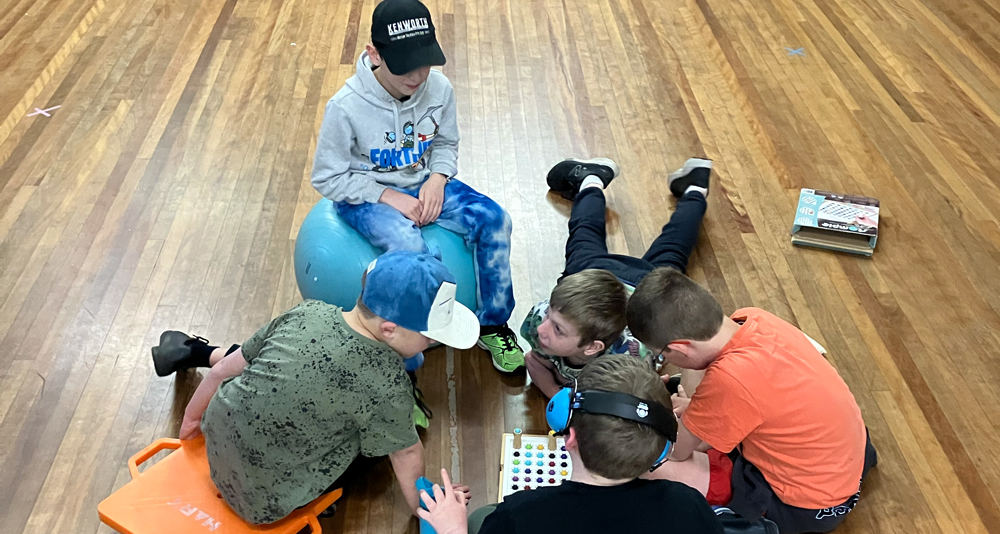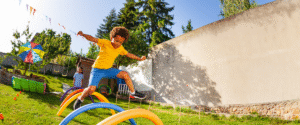
EMPOWERMENT THROUGH ADOLESCENCE: NAVIGATING PUBERTY WITH CONFIDENCE AND SUPPORT
As we focus on transitions this year, it’s essential to explore the significant changes our clients and families face, especially the transition from childhood to adulthood during puberty. Life transitions are inevitable in human development, and this one we are about to discuss can be challenging.
This period involves numerous emotional, cognitive, social, and physical developments that can be overwhelming. In this month’s blog, we’ll explore these changes and provide guidance on navigating this crucial phase.
What is Puberty?
Puberty is the process through which a child’s body matures into an adult body, marking the transition from childhood to adulthood. This period involves a range of physical, emotional, cognitive, and social changes, which can be challenging for many adolescents. Whilst these changes are natural, they can be overwhelming for many adolescents.
When Does Puberty Start?
Puberty typically begins between ages 9 and 11, though the timeline varies for each individual. Recognising and addressing these changes can help open dialogue and create supportive communication.
Physical Development:
- Growth Spurt: Rapid increase in height, usually earlier in girls (ages 9-14) and later in boys (ages 10-16).
- Secondary Sexual Characteristics: Girls develop breasts and broader hips; boys experience voice deepening and facial hair growth.
- Menstruation: Girls typically begin menstruating between ages 10 and 15.
- Voice Changes: Boys undergo vocal cord changes, which result in a deeper voice.
- Acne: Hormonal shifts increase skin oil production, often causing acne.
- Body Hair Growth: Increased hair growth in armpits, legs, and pubic regions.
- Changes in Body Composition: Girls develop a higher proportion of body fat, especially in hips and thighs, while boys experience more muscle growth.
Emotional Development:
- Hormonal changes
- Mood swings – feeling elated one moment and irritable the next
- Complex emotions such as romantic attraction, jealousy
- Self-esteem challenges and insecurities
- Explore and define their identities, values, beliefs, and aspirations.
Cognitive Development:
- Refine critical thinking skills
- Understand more abstract concepts
- Undertake risk-taking behaviours and test boundaries
- Questioning authority, societal norms and their
Social Development:
- Seek more social connections and a sense of belonging
- Participate in new activities or withdraw from usual activities
- Awareness of others, peer pressure and peer influences
- Develop new interests and motivations
How You Can Support Your Child?
Supporting your child through puberty is crucial for their development and well-being. The transition into this new stage of life is a massive milestone for the child and for you as their parent or caregiver. It’s important to take care of yourself while you support your child through this process.
Be Clear and Specific:
- Discuss puberty and the associated changes openly and honestly.
- Share personal experiences to provide realistic insight.
- Avoid euphemisms that can confuse your child.
What to Discuss:
- Explain the physical and emotional changes of puberty.
- Address self-care, hygiene, social interactions, and complex emotions.
- Offer opportunities for your child to express fears or concerns.
Healthy Relationships:
- Teach teens about respect and consent within relationships.
- Discuss the importance of healthy relationships and boundaries.
How We at Explore and Soar Can Support You and Your Child
Puberty can significantly impact emotional regulation and sensory processing. Hormonal changes and increased self-awareness during this time can intensify emotional responses and sensory sensitivities, leading to heightened sensitivity and difficulty managing overwhelming feelings. As Occupational Therapists, we can help your teens with:
Support in Self-Care:
- Hygiene Routines: Develop personalised routines for showering, brushing teeth, using deodorant, and skincare.
- Task Completion: Break down tasks into manageable steps for independence.
- Executive Skills: Teach time management and organisation to balance personal care with other activities.
Support in Emotional Regulation:
- Open Communication: Encourage expression of emotions in a nonjudgmental environment.
- Education: Provide information about physical and emotional changes.
- Coping Skills: Model and share healthy coping mechanisms like exercise, journaling, and deep breathing.
Support in Navigating Social Situations:
- Discuss Peer Pressure: Help teens develop strategies to resist negative influences.
- Promote Self-Confidence: Encourage pursuits that build self-esteem and resilience.
- Empathy and Inclusivity: Teach the importance of empathy and standing against bullying. This can be tricky for some kids, so playing games like Guess Who to challenge visual discrimination or role-playing complex social scenarios can be helpful.
- Healthy Peer Relationships: Guide adolescents in developing supportive friendships.
- Model Healthy Social Behaviour: Demonstrate respectful communication and conflict resolution.
Talk to us today about how Explore and Soar can help, including –
Goal-Based Face-to-Face Intervention:
- Individualised Approach: Tailor interventions to meet each child’s unique needs.
- Skill Development: Focus on task analysis for independence in self-care.
- Building Independence: Enhance awareness of internal cues and routines.
Parent Coaching and Collaborative Sessions:
- Education: Inform parents about changes in puberty and support strategies.
- Empowerment: Equip parents with tools to reinforce skills at home.
Community and Group Therapy:
- Social Groups: Offer group therapy programs to develop social interaction, motor skills, executive functioning, and more.
Please download our “Guide for Parents and Teens – Understanding Puberty” handout for more detailed information. This resource offers additional insights and strategies for supporting your child through this important life transition.
Join us as we explore new horizons and empower adolescents to overcome the challenges of puberty and beyond. We are creating a supportive environment where young minds can discover their potential and achieve personal growth. Let’s explore and soar together!
__________________
If you’d like to chat more, please don’t hesitate to contact us today! Call us on 0477 708 217 or email admin@exploreandsoar.com.au
Until Next Time,
Molly
PUBLISHED AUGUST 2024






